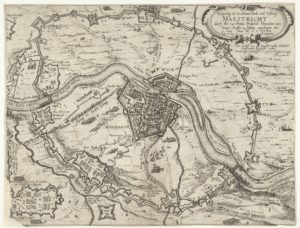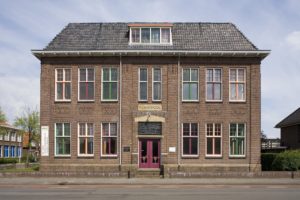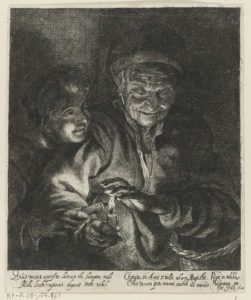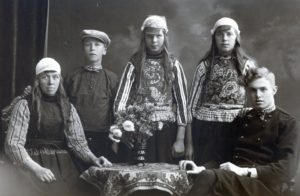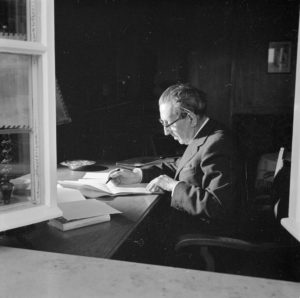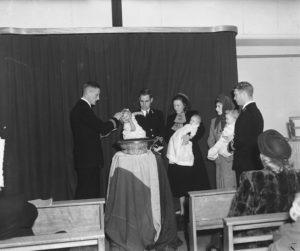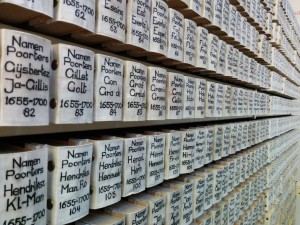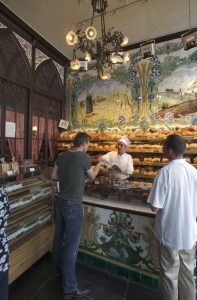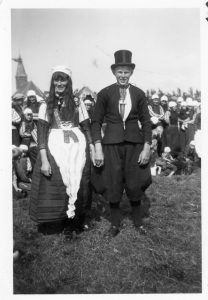The Tachtigjarige Oorlog was the Eighty Years' War that lasted from 1568 to 1648. It was the Dutch war of Independence where the Dutch fought for independence from the Habsburg empire, ruled by the Kings of Spain. Read about Five ways that the Eighty Years' War affected our ancestors. … [Read more...]
Dutch term – Rijkslandbouwwinterschool
The rijkslandbouwwinterschool was the national agricultural winter school. Farmer's sons (and later, daughters) attended the school during the winter months when there was not a lot to do on the farm. They'd learn about growing crops and raising cattle. This type of school was introduced in the period 1890-1920 throughout the country. Some still exist, but as a year-round school with an agricultural curriculum. … [Read more...]
Dutch term – Bij Kaarsenbrand
In old legal records, you can sometimes find that property was sold "bij kaarsenbrand" [by burning candle]. It does not mean that it was sold at night, but rather that the property was sold in an auction that lasted as long as a candle burned. If the candle went out, the highest bid at that time was the winning bid. It made sure that auctions would not drag on. … [Read more...]
Dutch term – Klederdracht
Klederdracht means traditional costume. Many regions had their own style. Experts can tell you what area a person in a photo came from just by looking at the style of headwear or clothing. … [Read more...]
Dutch term – Auteursrecht
Auteursrecht (literally: author law) is the Dutch term for copyright. Here are some things that you need to know about copyright in the Netherlands: Copyright expires seventy years after the death of the creator, after which time the work becomes part of the public domain. Copyright requires originality. There is no copyright on a truthful reproduction of a record in the public domain. The provider of the scan can set limits on reuse in the terms of use of the website, but this is … [Read more...]
Dutch term – Peter and Meter
A peter is a godfather, meter is a godmother. The terms are typically used in Catholic sources. The word compeer is also sometimes used, especially in older records. In Dutch Reformed sources, the term doopgetuige (baptismal witness), or getuige (witness) is used more often. … [Read more...]
Dutch term – Klapper
A klapper is a finding aid, usually a physical book or binder with a name index. Klappers can often be found in reading rooms of archives. They are disappearing as they are being scanned or entered into databases. Finding out what klappers exist can help you create a research plan for a visit to an archive. Some archives have a catalog or research guide on their website that indicates what klappers they have. Usually, you can only find out in the reading room itself. There may be a list of … [Read more...]
Dutch term – Bakker and Bakkerij
A bakker is a baker, and a bakkerij is a bakery. Bread was and is a staple in the Dutch diet. The content and weight of loaves of bread was heavily regulated. If you have ancestors who were bakers, you may find them on lists of calibrated weights, or involved in court cases if their loaves were found to be too light or containing different ingredients than advertized. … [Read more...]
Dutch term – Moetje
A moetje is a situation where a couple married because the bride was pregnant; a shot-gun wedding in modern terms. "Moeten" is the verb "must" and "-je" is the diminutive form. So the marriage was a "bit of a must." Customs were different in different areas and among different social classes. Among laborers in Friesland, it was quite common to hold off marriage until the girl was pregnant. But among farmers in Gelderland, most children were born at least nine months after the wedding. By … [Read more...]
Dutch term – Grootburger and Kleinburger
A burger is a burgher, a resident of the town with certain rights. Some towns had different levels of burghership, the grootburger [large burgher] and the kleinburger [small burgher]. The rights associated with each status depend on the location and period. Example: Burghers in Deventer This example is a translated abstract from information provided by the Historisch Centrum Overijssel, location Deventer. The city of Deventer in Overijssel recognized residents and burghers. Residents … [Read more...]
